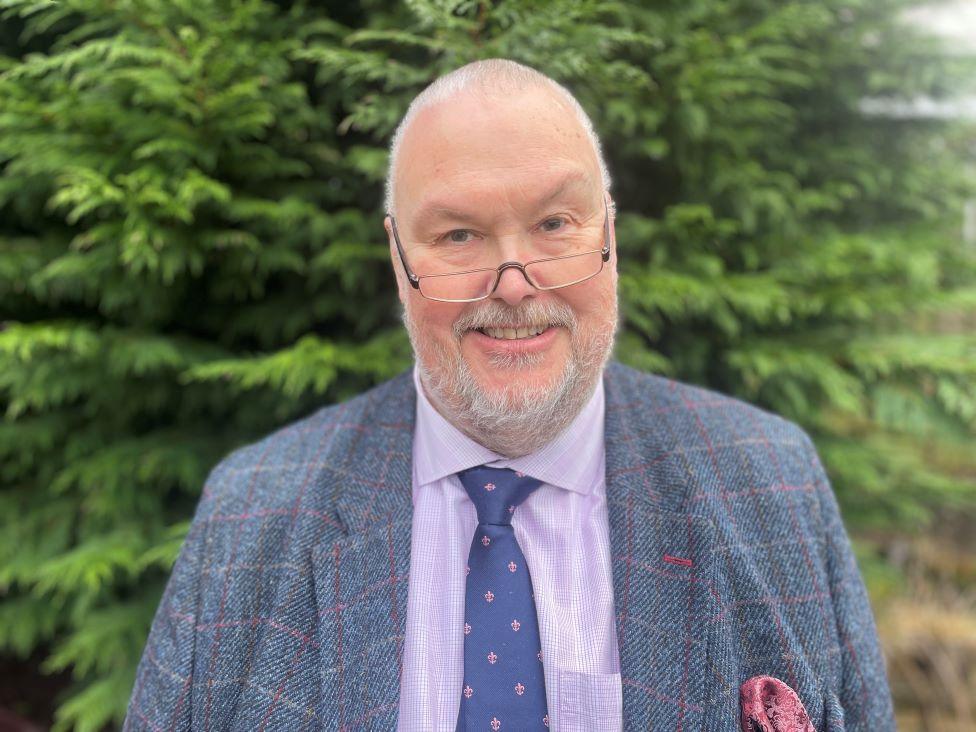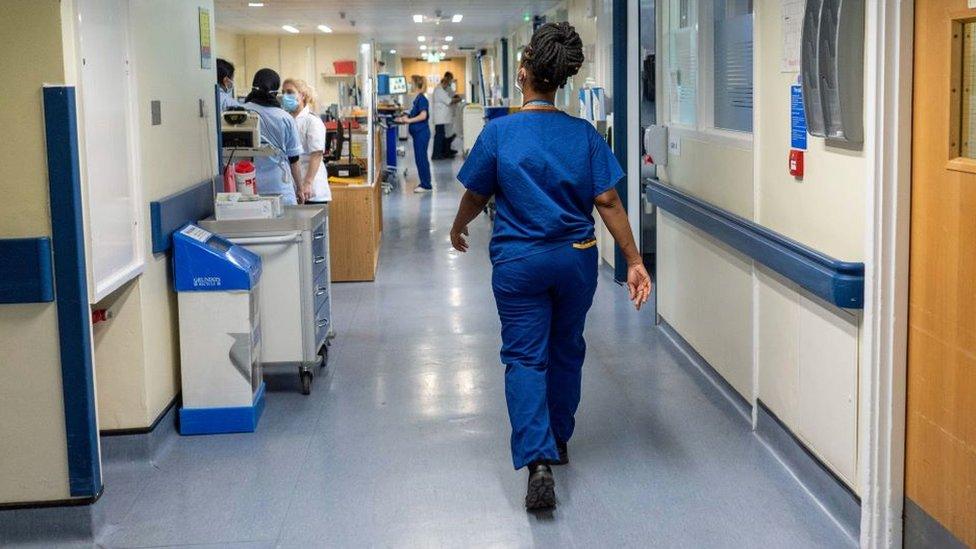Ex-NHS boss says health service is unsustainable
- Published

Paul Gray was chief executive of NHS Scotland from 2013 to 2019.
The former head of the NHS in Scotland has called for a debate about whether the private sector should have a greater involvement in healthcare.
Prof Paul Gray said the health service was "unsustainable" in its current form, with pressure on staff growing and service to patients deteriorating.
Change nothing, he warned, and "everything slowly gets worse."
Prof Gray's comments come as the number of patients on NHS waiting lists in Scotland hits another record high, external.
His views were echoed by Prof Andrew Elder, the president of the Royal College of Physicians of Edinburgh, who called for a "national conversation with the public" on the priorities that the NHS should focus on.
Prof Elder said: "The biggest challenge for our NHS can be summed up by the following questions - can we afford to provide every treatment available for the general public, free of charge and at the point of access?
"If we cannot - which seems probable in the coming years - how should we decide what we can provide?"
According to the latest statistics from Public Health Scotland, the waiting list for non-urgent outpatient care in Scotland was more than 525,000 this autumn, up 10.5% on the same time last year and more than double the level before the start of the Covid pandemic in March 2020.
The queue for inpatient treatment was more than 150,000 at the end of September, up 1% in three months.
There was a slight reduction in the number of people waiting more than two years for outpatient appointments but the number waiting more than 18 months to be treated in hospital as inpatients rose.
Public Health Scotland points out that individual patients can appear on more than one waiting list as they may be waiting for multiple appointments.
At the SNP conference in Aberdeen last month, First Minister Humza Yousaf promised to invest an extra £100m per year to bring down the longest waits by 100,000 by 2026.
Prof Gray said long waits meant many patients were already choosing to pay for some elements of their care, because they could afford to do so or because their need was dire.
A national conversation about the structure and funding of the NHS should have begun five years ago, he said, describing the situation now as "acute."
"What we can't afford is just to carry on as we are and hope for the best," added Prof Gray, who was chief executive of NHS Scotland from 2013 to 2019.

The Scottish government is to spend an additional £100m per year in a bid to cut waiting times over the next three years
He insisted he did not have a view about whether or not more private sector involvement was the answer and said he did not believe the NHS was being privatised by stealth.
Prof Gray said: "If we decide that actually the way we do it is the best way, of all the choices we could make, that's OK, we've had the conversation.
"If on the other hand we decide there's more space for the private sector, perhaps they could do more, then good, that's fine too."
He added: "I also think I hear and detect a genuine will to have the conversation. On balance my perspective is one of hope not one of despair."
Last year BBC News revealed that NHS leaders in Scotland had discussed the possibility of having the wealthy pay for treatment, with an official document referring to a "two-tier" health service.
The trade union, Unison, has criticised talk of more private sector involvement in public healthcare, insisting that the NHS "is in a parlous state," not because of structural failings but because of poor workforce planning and a lack of funding.
Wilma Brown, chair of Unison Scotland's health committee said "those promoting private medicine" were choosing "to put the poor at the back of the queue."
Ms Brown added: "Low taxes and properly funded public services are pretty much mutually exclusive. The debate we need is far more about resourcing than structure.
Prof Gray first described the NHS in Scotland as "not sustainable in its present form" in an article last month for the Herald newspaper and Reform Scotland, which describes itself as a non-partisan independent think tank.